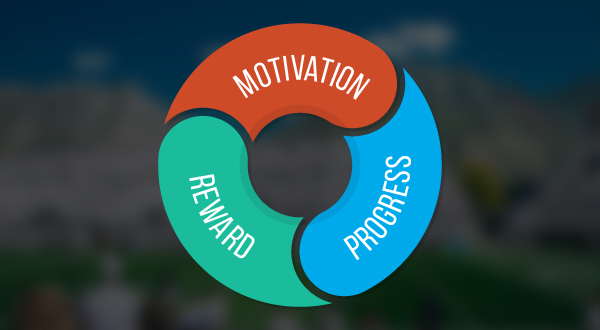Creating lasting healthy habits isn’t something you “try” to do—it’s something you do with a system, a strategy, and the right mindset. Let’s be clear: building habits isn’t about brute force or willpower; it’s about smart, intentional steps that build momentum over time.
As someone who has spent years coaching athletes, gym-goers, and busy professionals, I’ve seen how habits (or the lack of them) can make or break progress. Whether it’s sticking to a diet plan, getting consistent workouts in, or managing stress, the difference between success and failure often boils down to a few key habits.
But don’t worry: this isn’t going to be some fluffy, motivational “you can do it” blog. Instead, I’m going to share 5 scientifically-backed strategies you can use right now to create healthy habits that last.

Start Small and Nail the Fundamentals
First, let’s get something straight: don’t overwhelm yourself. A major mistake I see people make is trying to overhaul everything at once—jumping into intense workouts, restrictive diets, and an unrealistic schedule that’s bound to burn them out within weeks. According to a study published in the Journal of Behavioral Medicine, starting with small, manageable steps is critical for creating sustainable habits. [1]
For example, if you want to work out more, don’t commit to an hour of intense training every day right off the bat. Start with 10-20 minutes a day and focus on consistency. You’re trying to build the habit of showing up first, not being perfect. Once that habit is locked in, you can gradually add more volume, complexity, or intensity.
The takeaway: Start small, master the basic behaviors, and build from there. Mastery, not perfection, is what gets you long-term results.
Routine is Everything—Consistency is Key
Here’s a truth bomb: habits are made in routines. The more predictable a behavior is, the more automatic it becomes. A study in The European Journal of Social Psychology found that it takes an average of 66 days to form a habit, and consistency is the biggest factor in that process. [2]
If you’re always trying to find time to fit in a workout or prep meals, guess what? You won’t succeed. But if you tie your new habits to existing routines, you’ll have a much easier time. For instance, if you’ve already got a morning routine, simply add a 5-minute stretching session or a glass of water as part of it. Once you do something consistently, it becomes second nature.
The takeaway: Build habits into existing routines. Consistency is the secret sauce.
Know Your “Why” (Get Emotional About It)
Let’s get real: habits don’t stick if they don’t mean something to you. It’s not enough to just say “I want to get fit”—you need to connect emotionally to the reason why. This is critical because motivation is what drives us, and motivation often comes from an emotional connection to the goal.
A study in The Journal of Health Psychology showed that people who connected their fitness goals to meaningful values (health, longevity, quality of life) were far more likely to maintain those goals. [3] So, instead of saying “I just want to lose weight,” ask yourself, “What does this weight loss mean for my life? How will it improve my energy, my ability to move, or my confidence?”
The takeaway: Find your deeper “why.” When it matters emotionally, you’ll stick with it.
Reward Progress (It’s Not Just About Results)
Here’s a psychological hack: give yourself credit for progress, not just the final outcome. Research in The Journal of Applied Behavior Analysis shows that people who reward themselves for small wins are much more likely to sustain long-term behavior change. [4] This doesn’t mean indulging in pizza after a workout, but acknowledging the effort you put in.
For example, after completing a week of workouts, reward yourself with something non-food-related, like a massage or a new piece of workout gear. This positive reinforcement creates dopamine hits in your brain that help cement the behavior.
The takeaway: Reward small wins along the way. It doesn’t have to be big, but acknowledge your progress and build momentum.
Track Your Progress and Be Ready to Adjust
Tracking isn’t just for your calories or your reps—tracking your habits makes you more accountable and allows you to adjust when things aren’t working. Studies consistently show that people who track their progress (whether it’s through a journal, an app, or a fitness tracker) are more likely to stick to their goals. [5]
But here’s the kicker: tracking isn’t just about logging data. It’s about adjustment. If you miss a workout or stray from your eating plan, don’t just throw in the towel. Analyze what went wrong and adjust. Maybe you over-committed yourself, or perhaps your plan isn’t as realistic as you thought. This mindset shift from perfection to problem-solving is what separates those who give up from those who thrive.
The takeaway: Track your habits and progress. Be open to adjusting your plan as needed, but never give up on the bigger goal.

Conclusion: Build Healthy Habits, Not Quick Fixes
Here’s the bottom line: creating healthy habits isn’t about a flash-in-the-pan diet or a two-week fitness routine. It’s about making sustainable, incremental changes that become second nature over time. Start small, focus on consistency, connect emotionally to your goals, reward your progress, and track your results.
Remember, building healthy habits is a marathon, not a sprint. Keep it simple, stick to the process, and you’ll see lasting results. And as always, if you need help along the way, don’t hesitate to reach out. I’m always here to help you on your journey to becoming your best self. You can always find me by scheduling a No Sweat Intro with CrossFit Invigorate. We will get you started working towards your 2025 health and fitness goals.

References:
- Lally, P., van Jaarsveld, C. H., Potts, H. W., & Wardle, J. (2010). How are habits formed: Modelling habit formation in the real world. European Journal of Social Psychology.
- Lally, P., & Gardner, B. (2013). Promoting habit formation. European Journal of Social Psychology, 43(3), 331–340.
- Sheeran, P., & Webb, T. L. (2016). The Intention-Behavior Gap. Journal of Health Psychology, 21(3), 469-485.
- Gernsbacher, M. A., & Shultz, T. R. (2006). Applying behavior analysis to promote health behaviors. Journal of Applied Behavior Analysis.
- Burke, L. E., Wang, J., & Sevick, M. A. (2011). Self-monitoring in weight loss: A systematic review of the literature. The American Journal of Lifestyle Medicine, 5(3), 27-37.


